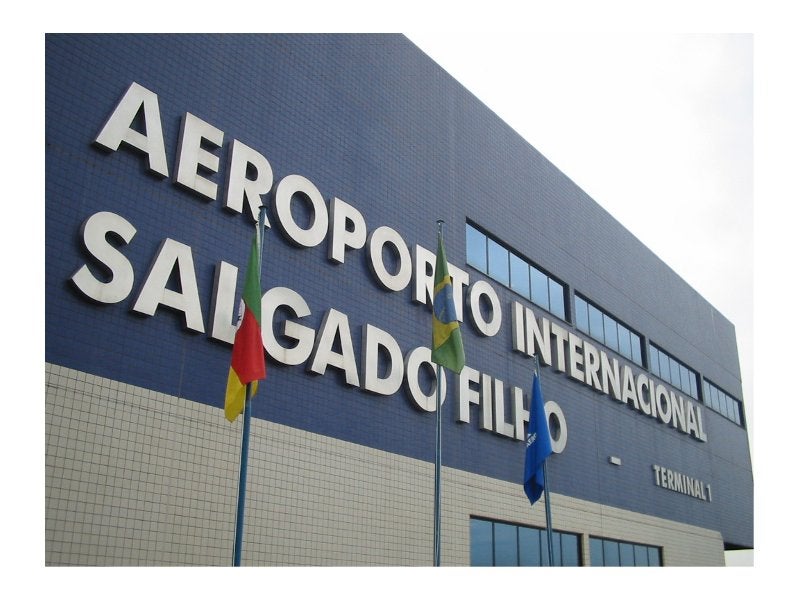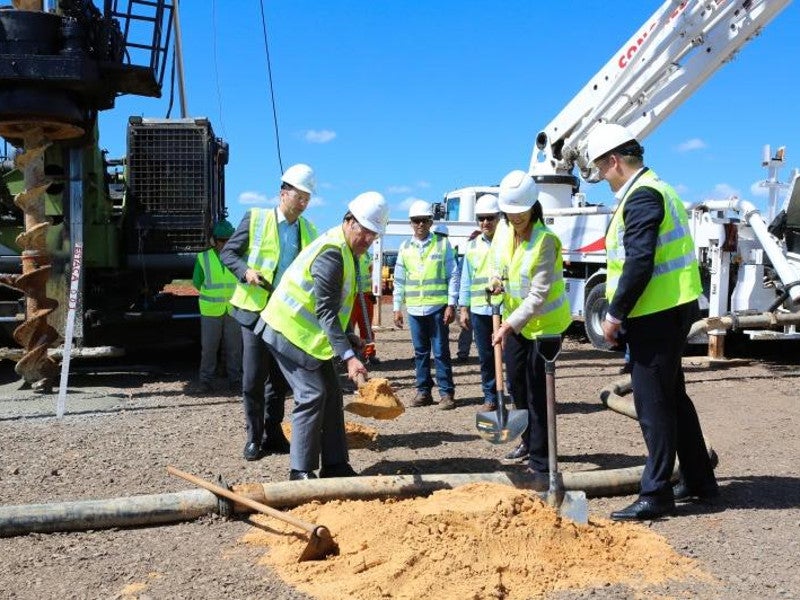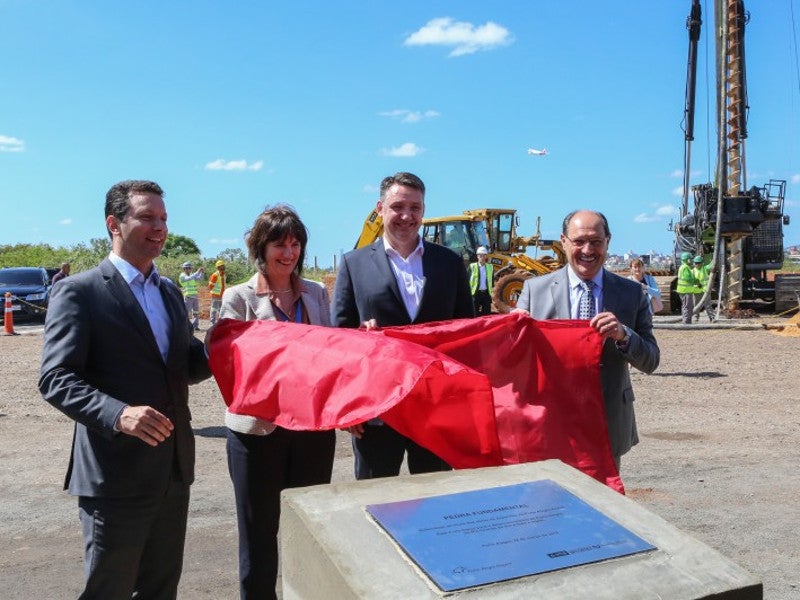Salgado Filho international airport (IATA: POA), also referred to as Porto Alegre international airport, is located in Porto Alegre, Brazil. It acts as a gateway to the state of Rio Grande do Sul in Brazil.
Owned by the government of Brazil, the airport is managed by Fraport Brasil S.A. Aeroporto de Porto Alegre, an airport management company founded by Fraport.
Fraport Brasil signed a concession agreement with the Brazilian government in July 2017 to operate the Salgado Filho airport for 25 years. The company took over the management of the airport in January 2018.
Fraport is also responsible for the enhancement of quality standards and existing infrastructure at the airport, under the concession agreement.
The ground-breaking ceremony for the expansion project was held in March 2018.
Salgado Filho international airport history
Formerly known as São João Federal Airport, the Salgado Filho international airport started operations as an air club in May 1923. The first passenger terminal was launched in 1940 and the airport was renamed Salgado Filho Airport in 1951.
A new passenger terminal named Terminal 2, along with a runway, was constructed in 1953. The old terminal was modified for maintenance operations.
The Terminal 2 was renovated multiple times in 1969 and 1971. The passenger terminal 1 was replaced with a new terminal to meet the rising traffic, in September 2001. Cargo and general aviation operations were transferred to Terminal 2 eventually.
The growing passenger traffic necessitated the airport authorities to renovate the Terminal 2.
Salgado Filho international airport expansion details
The expansion project will be carried out in two phases, of which the phase one began in March 2018 and is scheduled for completion in October 2019. The second phase will start in November 2019 and is expected to conclude in August 2042.
The phase one development includes expansion of the terminal building by 36,000m² in order to handle more passengers. A new patio will be built for the accommodation of 27 aircraft. It will also feature 14 parking spaces and boarding bridges.
A garage building with 4,300 parking areas and access ways will be constructed and safety areas will be created next to the runway. Strips and shoulders of the taxiways will be adjusted and an automated baggage safety management and inspection system will be installed to inspect the baggage.
A brand new cargo inspection system will also be deployed for the inspection of cargo to be shipped to international destinations. The phase one is expected to be carried out with an estimated budget of R$1.5bn ($39m).
The second phase of expansion will involve expansion of the existing runway from 2,280m to 3,200m to accommodate wide-body aircraft.
Existing facilities at the international airport
Salgado Filho international airport occupies an area of 3.8 million m² and features a ramp area of more than 14,750m². It carries day-to-day operations through two passenger terminal buildings and a single runway.
The passenger terminal 1 occupies an area of 37,600m² and has the capacity to accommodate more than eight million passengers a year. It integrates 16 gates and jetways. The second and third floors of the terminal building feature commercial spaces, restaurants, bookstores, and retail outlets.
Built in an extent of 14,750m², the second terminal has a maximum passenger handling capacity of approximately 2.5 million passengers a year.
The single runway of the airport, designated as Runway 11/29, has a length of 2,280m and a width of 42m.
The cargo terminal houses an imports warehouse, exports warehouse, cold storage facilities, restricted cargo warehouse, and abounded cargo storage facility. It also features a National Cargo Terminal operated by Avianca Cargo, Azul Cargo, GOLLOG, and Latam Cargo.
The official parking lot of the airport offers parking spaces for 1,440 vehicles. An additional parking facility at the airport provides secured self-parking services to the passengers.
Contractors involved with the airport expansion
Fraport placed an engineering, procurement, and construction (EPC) contract with HTBM consortium for the development of the expansion project in January 2018. The consortium is responsible for the project delivery and all associated works. The consortium comprises construction companies including HTB, Tedesco, and Barbosa Mello.
The HTBM consortium contracted Pöyry to offer detail engineering and field engineering services required for the passenger terminal expansion and garage building construction, in April 2018. Pöyry will also work on the taxiway and airstrip expansion, along with the installation of an electric substation.






